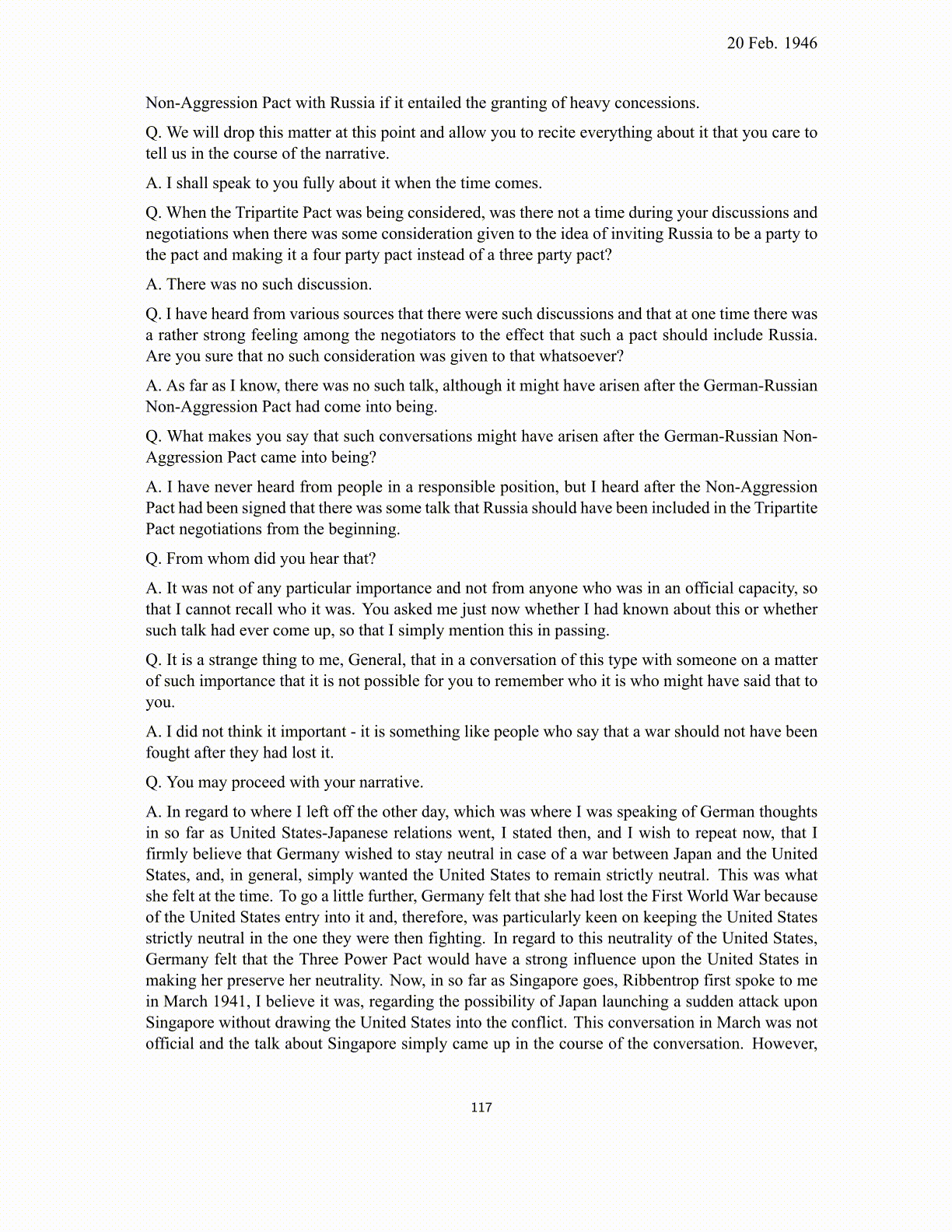
20 Feb. 1946 Non-Aggression Pact with Russia if it entailed the granting of heavy concessions. Q. We will drop this matter at this point and allow you to recite everything about it that you care to tell us in the course of the narrative. A. I shall speak to you fully about it when the time comes. Q. When the Tripartite Pact was being considered, was there not a time during your discussions and negotiations when there was some consideration given to the idea of inviting Russia to be a party to the pact and making it a four party pact instead of a three party pact? A. There was no such discussion. Q. I have heard from various sources that there were such discussions and that at one time there was a rather strong feeling among the negotiators to the effect that such a pact should include Russia. Are you sure that no such consideration was given to that whatsoever? A. As far as I know, there was no such talk, although it might have arisen after the German-Russian Non-Aggression Pact had come into being. Q. What makes you say that such conversations might have arisen after the German-Russian Non- Aggression Pact came into being? A. I have never heard from people in a responsible position, but I heard after the Non-Aggression Pact had been signed that there was some talk that Russia should have been included in the Tripartite Pact negotiations from the beginning. Q. From whom did you hear that? A. It was not of any particular importance and not from anyone who was in an official capacity, so that I cannot recall who it was. You asked me just now whether I had known about this or whether such talk had ever come up, so that I simply mention this in passing. Q. It is a strange thing to me, General, that in a conversation of this type with someone on a matter of such importance that it is not possible for you to remember who it is who might have said that to you. A. I did not think it important - it is something like people who say that a war should not have been fought after they had lost it. Q. You may proceed with your narrative. A. In regard to where I left off the other day, which was where I was speaking of German thoughts in so far as United States-Japanese relations went, I stated then, and I wish to repeat now, that I firmly believe that Germany wished to stay neutral in case of a war between Japan and the United States, and, in general, simply wanted the United States to remain strictly neutral. This was what she felt at the time. To go a little further, Germany felt that she had lost the First World War because of the United States entry into it and, therefore, was particularly keen on keeping the United States strictly neutral in the one they were then fighting. In regard to this neutrality of the United States, Germany felt that the Three Power Pact would have a strong influence upon the United States in making her preserve her neutrality. Now, in so far as Singapore goes, Ribbentrop first spoke to me in March 1941, I believe it was, regarding the possibility of Japan launching a sudden attack upon Singapore without drawing the United States into the conflict. This conversation in March was not official and the talk about Singapore simply came up in the course of the conversation. However, 117